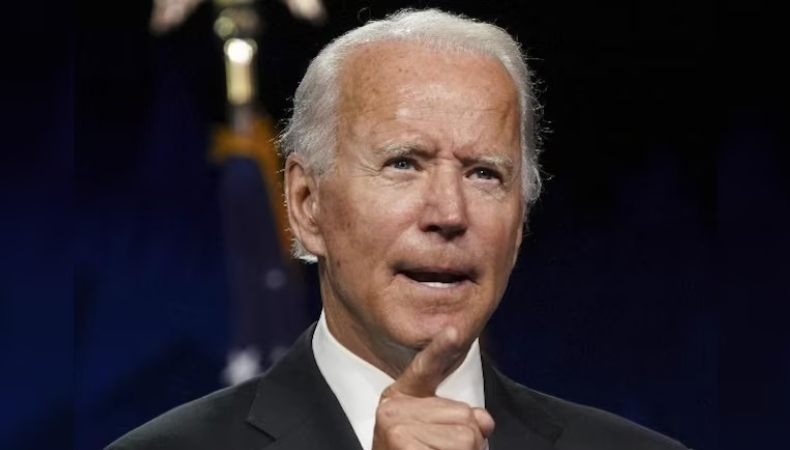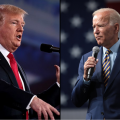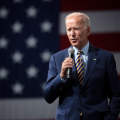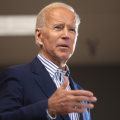Is a Middle East Censorship the Key to Joe Biden’s Election Win?

Given the approaching presidential contest, recent comments made by Hudson Institute Senior Fellow Michael Doran have highlighted a possible change in President Joe Biden’s Middle East strategy. It is proposed that Biden aims to shift attention away from the Middle East, a significant shift from its usual center stage in U.S. foreign policy debates.
Unveiling the Biden Doctrine
Biden seems to be taking a more proactive tack than merely trying to defuse tensions or preserve a precarious equilibrium in the Middle East. It appears, instead, to be a conscious attempt to keep the area out of the news. This suggests a more comprehensive approach meant to not only resolve current issues but also to completely change the story of American engagement in the region.
Biden appears to be arguing essentially for a change in foreign policy away from the crisis-oriented strategies of earlier administrations. Rather, it seems that he supports a proactive approach that addresses the underlying reasons of Middle Eastern instability while also giving greater strategic objectives—including controlling the emergence of major world powers like China and Russia—priority.
Israel’s Part in the Formula
Biden’s approach is based mostly on the knowledge that settling Middle Eastern problems calls for more than merely guaranteeing Israel’s triumphs. Although American support of Israel is still a pillar of its foreign policy, the Biden administration appears to be striving for a more all-encompassing peace that will successfully quell regional conflicts.
This is a change from the customary focus on bilateral talks to a more comprehensive strategy. Through addressing the fundamental complaints igniting hostilities in the area, Biden hopes to create a more solid and long-lasting peacekeeping system that goes beyond temporary truces and ceasefires.
Election-Year Realpolitik
The strategic manoeuvre of Biden was well-timed. The administration understands well the political ramifications of its foreign policy choices because of the approaching presidential election. In order to present himself as a leader concentrated on urgent domestic concerns like healthcare and economic recovery, Biden minimizes the importance of the Middle East in public debate, therefore presenting a picture of stability and diplomatic skill throughout the world.
It is not without dangers, though. Critics could charge Biden of ignoring important matters in the interest of political expediency, which would damage his reputation as a world leader. Furthermore, considering the erratic character of Middle Eastern politics, any move to marginalize the area would backfire and result in fresh hostilities and instability.
Risks and Benefits
All the same, Biden’s approach has drawbacks. The Middle East is still a dangerous place open to abrupt upheavals and changes in geopolitics. Setting it down below other international concerns runs the danger of catching the administration off guard by unanticipated events.
Moreover, detractors would contend that ignoring the Middle East would undermine American reputation and might in the area, giving enemies more confidence and upsetting important allies. Biden’s approach, meanwhile, would open the door to a more stable and peaceful Middle East that is less dependent on American military action and more favourable to regional development and cooperation.
Keep Reading
A Revolution in American Foreign Policy
Notwithstanding the result, Biden’s action suggests a more general change in American foreign policy. The government indicates its intention to take a more realistic and progressive stance to international affairs by reassessing the relative importance of various regions and concerns.
It is yet unknown if this rebalancing results in long-lasting stability and peace in the Middle East. One thing is certain, nevertheless: the time when the area dominated headlines might be coming to an end. The globe awaits with expectation a future characterized by peace, prosperity, and collaboration as the Biden administration sets a new direction for U.S. foreign policy.












